Gino chuckled. “But this is an old, elderly gentleman. He won’t be interested.” He nodded to Verlis and to me. “Julio dreams of robots, signore. He tells his mother he was a robot once.”
I sat like a stone.
Verlis said softly, “He has wonderful English.”
“Yes, it’s curious, signore. He picked that up in his second year. Like he almost was born with it. His mother has no idea how he learned it. Apart from tourists, maybe, except he sees so few. I think this is why he came to talk with you, signore. Though your Italian, may I say, is perfect. Oh, but you should hear this boy play piano. Never taught—just has the gift. Already he is a virtuoso.”
The child said, gazing at Verlis, “Do you like silver things, signore ? Would you like this?” And he sprung the wristlet from his wrist, and held it out before Verlis.
The bodyguard exclaimed, “No, Julio!” He was shocked.
But none of us—the child, Verlis, and I—took any notice. And anyway, adoringly used to the boy’s eccentricities, no doubt, the bodyguard didn’t protest again.
Verlis reached out and took the wristlet.
“Why?” he said.
“You and I. We can share the same thing,” said the child.
My heart snagged.
Through its ragged uproar, I heard Verlis say, “Then—”
But the child named Julio had darted round. He and the cat raced off over the broken tiling of the airport lounge. Still amused, the bodyguard ran after, “So long, signore, signorina —Julio! Julio!”
Verlis and I sat on the bench. We said nothing. His mind was shut off, like a bellowing room behind a door.
Sometimes Verlis communicates with the team, the gods, on the dark side of the moon.
He reveals nothing of this, apart from saying everything’s okay, no threat or horror is imminent, for them, or for us. Would I know, even now, if he lied? Would my own abilities inform me?
He’s making (he says “making” not composing) an opera. They can see another spectrum of color, his kind, as well as the spectrum humans have. I, despite what I am and all the “practice” I put in, won’t ever see those other colors Verlis sees. Even if his mind tries to show my mind, even my inner eye can’t see them. He says that music is humanity’s highest expressive form. Including the human voice, or what will pass as a (superlative) human voice, raises music further, to some transcendant apex. But language, unless everyone can speak the same one, then becomes the obstacle. And so every aria or episode of his opera is to be only a color of the human spectrum. A color made in music, and in light, and in the words the singer will sing. We can always get cash, so providing him with instruments would never be difficult. But now he uses only his brain as the instrument. Sometimes he’ll play me the symphonic strains that are flowing in his head, and I hear them in my own, and the voices singing—Glaya’s voice, her two voices, that’s what I hear then, and his. It isn’t emotionless, this color opera, it’s pure emotion—passion, pain, longing, joy…
Last night, as we were curled together in that special kind of “sleep” he always had, and that now I have, too, when he and I wander together in the forms we originally wore—a tawny girl, a silver man with long and fire-red hair—last night, in that double dream-which-isn’t, Verlis said to me, “Do you remember?” And he put the silver wristlet the child passed to him into my hand. All the silver rings and other jewels he gives me from himself always vanish in a few hours. But the wristlet is real, out in the world. He wears it there inside his shirt, hanging on a cord. “Yesterday,” Verlis said. “Tomorrow. But there’s no Now. You keep us safe, Loren,” Verlis said.
And so I’ve added this last section to my Book. If the boy was Silver, reincarnated as a human, who knows? Or if any of us, metal or mortal, has a soul… Verlis and Loren—he and I—that’s all I care about. All I want. He and I.
He and I.
Tanith Lee was born in 1947 in London, England. She received her secondary education at Prendergast Grammar School, Catford. She began to write at the age of nine.
After school she worked variously as a library assistant, a shop assistant, a filing clerk, and a waitress. At age twenty-five she spent one year at art college.
From 1970 to 1971 three of Lee’s children’s books were published. In 1975 DAW Books USA published Lee’s The Birthgrave, and thereafter twenty-six of her books, enabling her to become a full-time writer.
To date she has written sixty-four novels and ten collections of novellas and short stories. Four of her radio plays have been broadcast by the BBC and she has written two episodes of the BBC cult series Blake’s Seven . Her work has been translated into over fifteen languages.
Lee has twice won the World Fantasy award for short fiction, and was awarded the August Derleth Award in 1980 for her novel Death’s Master .
In 1992 Lee married the writer/artist John Kaiine, her partner since 1987. They live in southeast England with two black-and-white cats.
Bantam Books by Tanith Lee

The Silver Metal Lover
Preview of Silver Metal Lover

Be sure not to miss the timeless tale that started it all, also available from Bantam Spectra.
THE SILVER METAL LOVER
by Tanith Lee
Here is Jane’s story—the story that changed Loren’s life. Now, let it change yours.
Mother, I am in love with a robot.
No. She isn’t going to like that.
Mother, I am in love.
Are you, darling?
Oh, yes, mother, yes I am. His hair is auburn, and his eyes are very large. Like amber. And his skin is silver.
Silence.
Mother. I’m in love.
With whom, dear?
His name is Silver.
How metallic.
Yes. It stands for Silver Ionized Locomotive Verisimulated Electronic Robot.
Silence. Silence . Silence.
Mother…
I grew up with my mother in Chez Stratos, my mother’s house in the clouds. It’s a beautiful house, but I never knew it was beautiful until people told me so. “How beautiful!” They cried. So I learned it was. To me, it was just home. It’s terrible being rich. One has awful false values, which one can generally only replace with other, falser, values. For example, the name of the house, which is, apparently, very vulgar, is a deliberate show of indifference to vulgarity on my mother’s part. This tells you something about my mother. So perhaps I should tell you some more.
My mother is five feet seven inches tall. She has very blond hair, and very green eyes. She is sixty-three, but looks about thirty-seven, because she takes regular courses of Rejuvinex. She decided to have a child rather late, but the Rejuvinex made that perfectly all right. She selected me, and had herself artificially inseminated with me, and bore me five months later by means of the Precipta method, which only takes three or four hours. I was breast-fed, because it would be good for me, and after that, my mother took me everywhere with her, sometimes all round the world, through swamps and ruins and over broad surging seas, but I don’t remember very much of this, because when I was about six she got tired of it, and we went to Chez Stratos, and more or less stayed here ever since. The city is only twenty miles away, and on clear days you can see it quite easily from the balcony-balloons of the house. I’ve always liked the city, particularly the look of it at night with all the distant lights glittering like strings and heaps of jewels. My mother, hearing this description once, said it was an uninspired analogy. But that’s just what the city at night looks like to me, so I don’t know what else to say. It’s going to be very difficult, actually, putting all this down, if my analogies turn out badly every time. Maybe I just won’t use analogies.
Читать дальше
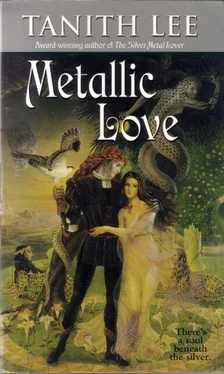



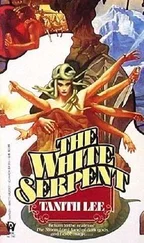
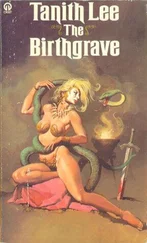

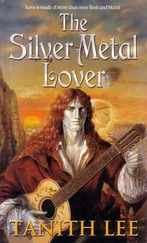
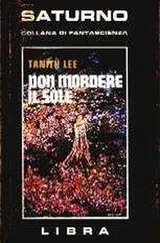
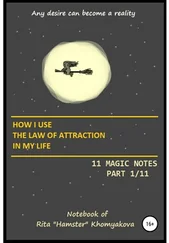




![William Frith - John Leech, His Life and Work. Vol. 1 [of 2]](/books/747171/william-frith-john-leech-his-life-and-work-vol-thumb.webp)
![William Frith - John Leech, His Life and Work, Vol. 2 [of 2]](/books/748201/william-frith-john-leech-his-life-and-work-vol-thumb.webp)